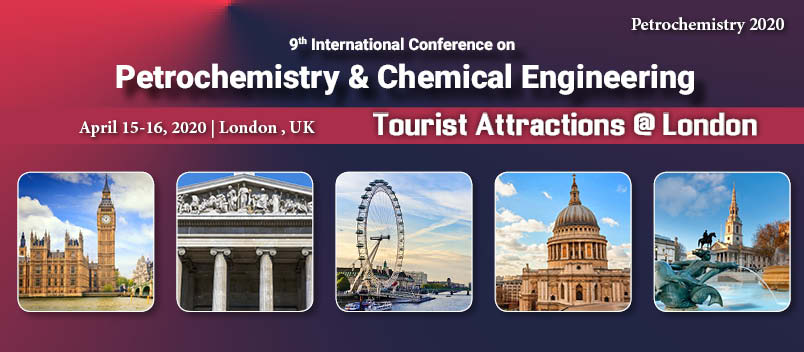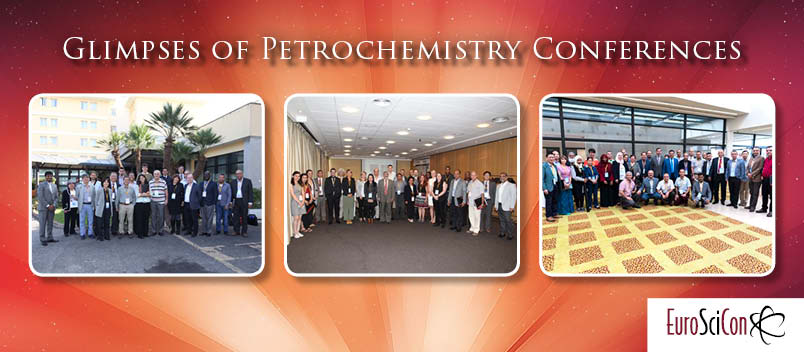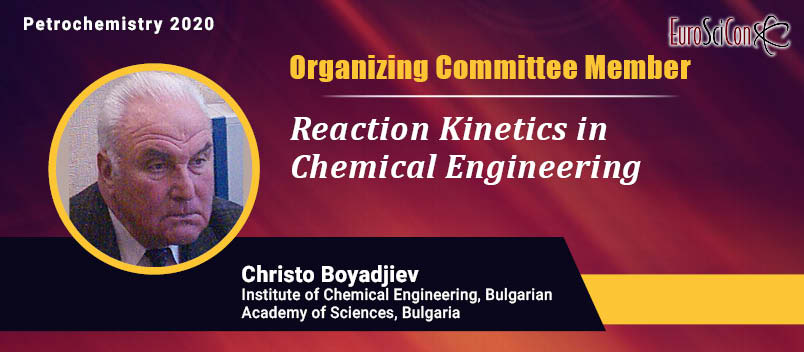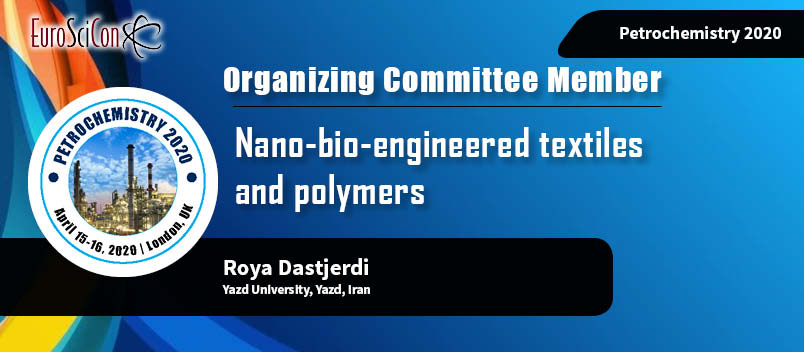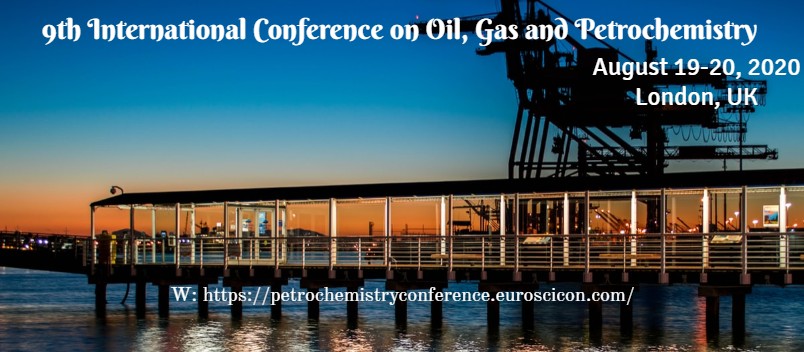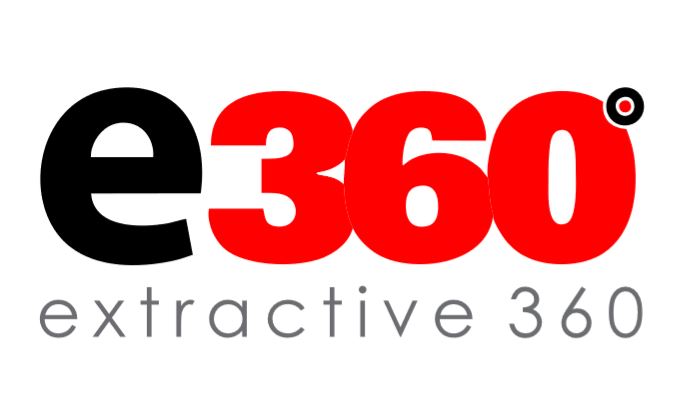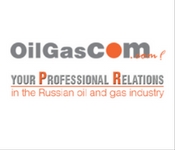Oil and Gas Conference
ABOUT CONFERENCE
Euroscicon welcomes all the members in the field of Chemical and Petroleum Engineering throughout the world to attend the 9th International Conference on Oil, Gas and Petrochemistry during the month of August 19-20, 2020 in London, UK with the subject “Innovative Mechanization for Evolution of Petrochemical Engineering" which incorporates brief keynote introductions, Oral talks, Poster introductions and Exhibitions.
Oil and Gas 2020 will provide an ideal opportunity for industry experts, leading engineers, Researchers and technical managers as well as university scholars to share ideas and Research achievements related to petroleum & petrochemical technology and discuss the practical challenges encountered and the solutions adopted. It will create a platform to bridge achieving sustainable development by using education and technology.
There is a worldwide demand for Oil and Gas which is not going to decline for decades. Environmental Impact Assessment expects global consumption of petroleum and oil fuels to continue to grow by 1.5 million b/d in 2017 and by 1.9 million b/d in 2018. Because of repository attributes and constraints in petroleum extraction innovations, just a small amount of this oil can be conveyed to the surface, and it is just this producible part that is thought to be stored. Dubai, UAE, Qatar, and countries hold among the most important sites present in the world Oil and Gas scenario and world conserve. There are also continental Oil and Gas growths, Challenges and issues in Oil and Gas developments, Gas industry and profession, Global Price influence and Price Monitoring and maintenance of reserves which control the Fuel economy.
Petroleum Engineering includes New Technologies and Discoveries related to petroleum products, Chemical processes, Petrochemistry, Future targets, Marine and Petroleum Geology, and Chemical Engineering. Petrochemicals, also called petroleum condensates, are chemical products derived from petroleum. The different petrochemical applications in industries are the key factors of the growth in this sector. The future brings more and more potentials for the petrochemical industry as a supplier of basic materials. Petrochemical industry favors integration due to obtaining secure, low-cost feed supply, enhance by-product stream value and minimize cost structure.
Biofuels are a hot ecological theme right now. The part of the biofuel business is not to supplant oil diesel totally, but rather to help in making an adjusted vitality arrangement with the most advantage. Biodiesel is one of a few conceivable fills intended to augment the handiness of oil, and the lifespan and cleanliness of diesel motors. Biofuels carbon impartial: growing a tree and after that consuming it as a biofuel doesn't add any carbon dioxide to the air or exacerbate a dangerous atmospheric deviation to any extent. Biodiesel is intended to be utilized as a part of standard diesel motors and is along these lines from the vegetable and waste oils used to fuel changed over diesel motors. Biodiesel can be utilized alone or mixed with Petro diesel in any extents. Biodiesel mixes can likewise be utilized as warming oil.
Enhanced oil recovery is the usage of different strategies for expanding the measure of unrefined petroleum that can be separated from an oil field. Improved oil recuperation is additionally called enhanced oil recuperation or tertiary recuperation. As per the US Department of Energy, there are three essential systems for EOR: warm recuperation, gas infusion, and substance injection. Sometimes the term quaternary recuperation is utilized to allude to more progressed, theoretical, EOR strategies.
Primary petrochemicals include methanol, ethylene, propylene, butadiene, benzene, toluene and xylene. Products Made from Petrochemicals also include plastics, soaps, detergents, solvents (such as paint thinner), paints, fertilizers, pesticides, explosives, synthetic fibers and rubbers, and flooring and insulating materials.
The two most common petrochemical classes are Olefins and Aromatics, Oil refineries produce olefins and aromatics by fluid catalytic cracking of petroleum fractions.
Olefins include Propene, Butenes and butadiene. Ethylene and propylene are important sources of industrial chemicals and plastics products. Butadiene is used in making synthetic rubber.
Importance and Scope
Oil is sold as fuel oil and melted oil gas. Interest for oil is driven via auto and truck use, and home warming. The best two nations that expend the most oil are China and Japan; together they represent 20% of aggregate worldwide utilization. The U.S. fuel oil and LP gas merchants had add up to yearly income of about $770 billion out of 2013, from around 5,400 organizations. An oil design is engaged with almost the greater part of the phases of oil and gas field assessment, improvement and generation. The point of their work is to boost hydrocarbon recuperation at least cost while keeping up a solid accentuation on decreasing natural effect. The world economy utilizes around 60 billion tons of assets every year to deliver the products and ventures which we as a whole expend. On the normal, a man in Europe expends around 36kg of assets for each day; a man in North America devours around 90kg every day, a man in Asia expends around 14 kg such an enormous utilization uncover the need of this.
Aromatics includes Benzene, toluene and xylenes, as a whole referred to as BTX and primarily obtained from petroleum refineries by extraction from the reformate produced in catalytic reformers using Naphtha obtained from petroleum refineries
Who Can Attend?
Oil and Gas, Petroleum Chemistry Professors, Oil and Gas Societies, Petroleum Engineering Faculty, Petrology Graduates, Petroleum Technology Students, Oil and Gas Research Scholars, Oil and Gas Scientists, Petroleum Analysts, Chemical Engineering Professors, Petroleum Chemicals Marketers. It is a forum to explore issues of mutual concern as well as exchange knowledge, share evidence, create arrangements, ideas, and generate solutions.
Why to attend?
Oil and Gas Conference offers a fabulous chance to meet and make new contacts in the field of Oil and Gas, Petroleum geography, Refinery Gases, by giving coordinated effort spaces and break-out rooms with tea and lunch for delegates between sessions with important systems administration time for you. It enables representatives to have issues tended to on Petroleum and concoction process control by perceived worldwide specialists who are in the know regarding the most recent advancements in the Petroleum field and give data on new procedures and advances. This International Petroleum refinery meeting will include eminent keynote speakers, all-hands conferences, youthful research discussion, notice introductions, specialized workshops and profession direction sessions Business and some more
Why London, UK?
London, the capital of England and the United Kingdom, is a 21st-century city with history stretching back to Roman times. At its center stand the imposing Houses of Parliament, the iconic ‘Big Ben’ clock tower and Westminster Abbey, site of British monarch coronations. Across the Thames River, the London Eye observation wheel provides panoramic views of the South Bank cultural complex, and the entire city. London has a diverse range of people and cultures, and more than 300 languages are spoken in the region. It’s estimated mid-2016 municipal population (corresponding to Greater London) was 8,787,892, the largest of any city in the European Union and accounting for 13.4% of the UK population. London's urban area is the second most populous in the EU, after Paris, with 9,787,426 inhabitants at the 2011 census. The city's metropolitan area is the most populous in the EU with 14,040,163 inhabitants in 2016, while the Greater London Authority states the population of the city-region as 22.7 million. London was the world's most populous city from c.1831 to 1925.
London contains four World Heritage Sites: The Tower of London; Kew Gardens; the site comprising the Palace of Westminster, Westminster Abbey, and St Margaret's Church; and the historic settlement of Greenwich (in which the Royal Observatory, Greenwich defines the Prime Meridian, 0° longitude, and GMT). Other landmarks include Buckingham Palace, the London Eye, Piccadilly Circus, St Paul's Cathedral, Tower Bridge, Trafalgar Square and The Shard. London is home to numerous museums, galleries, libraries, sporting events and other cultural institutions, including the British Museum, National Gallery, Natural History Museum, Tate Modern, British Library and West End theatres. The London Underground is the oldest underground railway network in the world.
SESSIONS & TRACKS
Track 1: Petroleum Exploration & Field Management
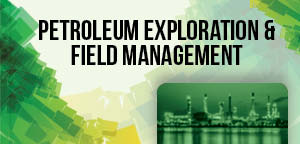
Petroleum Exploration is the process of exploring for oil and gas resources in the earth’s sedimentary basins. The process relies on the methodical application of technology by creative geoscientists that leads to viable prospects to drill and the actual drilling of these prospects with exploratory and appraisal wells. Geological prospecting and exploration for oil and gas is a set of industrial and R&D activities for geological study of subsurface resources, identification of promising areas, and discovery of fields, their evaluation and pre-development. The final objective of geological prospecting is preparation of subsurface resources. The main principle of geological prospecting is the comprehensive geological study of subsurface resources when along with oil and gas exploration all associated components petroleum gas and its composition, sulphur, rare metals, etc., possibility and practicality of their production or utilization are investigated; hydrogeological, coal mining, engineering, geological and other studies are performed; natural, climatic, socioeconomic, geological engineering and economic indicator and their changes caused by future field development are analyzed.
The global petroleum resin market is estimated to reach USD 2.58 Billion by 2021, at a CAGR of 7.7%. The market is segmented by application, such as adhesives & sealants, printing inks, paints & coatings, rubber compounding, tapes & labels, and others applications; by type that includes C5 petroleum resins, C9 petroleum resins, hydrogenated hydrocarbon resins, and C5/C9 petroleum resins; by end-use industry such as building & construction, tire industry, personal hygiene, consumer goods, automotive, and others; by region, namely, North America, Middle East & Africa, Latin America, Asia-Pacific, and Europe. The base year considered for the study is 2015, while the forecast period is between 2016 and 2021.
Track 2: Petroleum and Petrochemicals

Petrochemicals are substance items acquired from oil by refining. Some chemical mixes produced using oil are likewise obtained from other petroleum derivatives, for example, coal or gas, or inexhaustible sources, for example, corn, palm natural product or sugar stick, The two most normal petrochemical classes are olefins counting ethylene and propylene and aromatics like benzene, toluene and xylene isomers. Petroleum treatment facilities produce olefins and aromatics by liquid reactant breaking of oil portions. Synthetic plants produce olefins by steam splitting of gaseous petrol fluids like ethane and propane. Aromatics are delivered by reactant transforming of naphtha. Olefins and aromatics are the structure hinders for a wide scope of materials, for example, solvents, cleansers, and glues. Olefins are the reason for polymers and oligomers utilized in plastics, filaments, elastomers, greases, and gels. Petrochemicals also include plastics, soaps, detergents, paints, fertilizers, pesticides, synthetic fibers, explosives, rubbers, and flooring and insulating materials.
Track 3: Petrochemical Plant and Processes

Petroleum processing plants produce olefins and aromatics by fluid catalytic cracking of petroleum fractions. Compound plants take gaseous petrol fluids from a gas handling plant and utilize a steam splitting procedure to create olefins. Aromatics are delivered by reactant changing of naphtha. A chemical plant is an industrial process plant that manufactures chemicals, usually on a large scale. The general objective of a chemical plant is to create new material wealth via the chemical or biological transformation and or separation of materials. Petrochemical plants are usually located adjacent to an oil refinery to minimize transportation costs for the feedstock’s produced by the refinery. Specialty chemical and fine chemical plants are usually much smaller and not as sensitive to location. Tools have been developed for converting a base project cost from one geographic location to another. A chemical plant commonly has usually large vessels or sections called units or lines that are interconnected by piping or other material-moving equipment which can carry streams of material. Such material streams can include fluids or sometimes solids or mixtures such as slurries. An overall chemical process is commonly made up of steps called unit operations which occur in the individual units. A raw material going into a chemical process or plant as input to be converted into a product is commonly called a feedstock, or simply feed.
Track 4: Extraction of Petroleum and its By-Products

Petroleum extraction is a process by which petroleum is taken out from the earth’s surface. Petroleum Geologists use seismic surveys to find the geological structures that might be used for the formation of oil reservoirs. Many instruments like Gravimeters, Magnetometers are used to search for Petroleum. Oil wells are created by drilling into earth with the help of oil rigs. Extraction of crude oil starts with drilling wells into underground.
Track 5: Manufacturing Processes Involved in the Petroleum Refining

Petroleum refining processes are the chemical engineering processes and other facilities used in petroleum refineries to transform crude oil into useful products such as liquefied petroleum gas (LPG), gasoline or petrol, kerosene, jet fuel, diesel oil and fuel oils. Petroleum refineries are very large industrial complexes that involve many different processing units and auxiliary facilities such as utility units and storage tanks. Each refinery has its own unique arrangement and combination of refining processes largely determined by the refinery location, desired products and economic considerations. Crude Oil Distillation unit, Naphtha hydrotreater unit, Catalytic reforming unit, Isomerization unit, Distillate hydrotreater, Fluid catalytic cracking, Hydrocracker unit, Visbreaker unit are some the processing units used for the refining process.
Track 6: Harmful Effects of Petrochemicals

On burning petrochemicals release nitrogen, ash, sulfur and carbon into the atmosphere, contributing to pollution and smog, when these chemicals combine with water vapor, they can cause acid rain. Over the years there have been increased concerns over the environmental effects of the petroleum industry. The environmental impacts of petroleum are mainly refusal. This is due to the toxicity of petroleum which contributes to air pollution, acid rain etc. which leads to illness in humans. Oil spills cause wide damage in the marine environment. Greenhouse gases produced by the burning of petrochemicals, which includes carbon dioxide, warm up the Earth by trapping heat in the atmosphere.
Track 7: Instrumentation in petrochemical industries

Different Instruments are in use for the monitoring and control the process plant in oil, gas and petroleum industries. They includes sensing devices to measure process parameters such as temperature, pressure, liquid level, flow, velocity, composition, density, weight; and mechanical and electrical parameters such as vibration, position, current and voltage, Equipment’s used are Oil treatment plants, Module-Type Formation Pressure Maintenance Plant, Oil-heating units, Mobile Nitrogen Production System, Mobile Gas Pumping System, Oil desalting plants, Gas Separators, Oil and gas production and transport equipment, Drilling Equipment, Equipment for offshore platforms, Fuel storage tanks, Rotating Equipment’s like these many equipment’s are used for different purposes in the oil gas and petroleum field.
Track 8: Safety Hazards Associated with Oil, Gas and Petroleum Activities

Safety is now the main criteria in the oil and gas industry. Workplace safety and more advanced technologies to monitor and prevent injuries and accidents is mandatory, the rate of injury was down to 1.8 per 100 workers in 2012, according to the Petroleum Institutes. Oil and gas well drilling and servicing activities involve many different types of equipment and materials. Recognizing and controlling hazards is critical to preventing injuries and deaths.
Track 9: Processing Units Used in Refineries
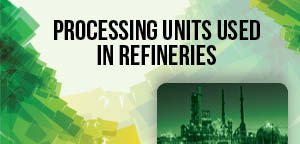
There are different processing units used in the Refineries. Each of these plays a major role in the overall process of converting the crude oil into finished petroleum products. The Processing units involved are Separation units, Conversion units, supporting process units, treating units etc. The typical process units involved are crude desalting, Atmospheric distillation, Visbreaker, Hydrocracker, Thermal cracker and many.
Track 10: Enhanced Oil Recovery

Enhanced Oil Recovery is the process of increasing the amount of oil that can be recovered from an oil reservoir, usually by injecting some substances into an existing oil well to increase pressure and decrease the viscosity of the oil with a conventional oil well, natural pressure in the reservoir that pushes the oil to the surface or a pump is used to create and maintain the pressure. There are several different methods of Enhanced Oil Recovery including Thermal recovery, Gas injection, Chemical injection etc.
Track 11: Offshore Oil and Gas Production

Offshore oil and gas production, which involves extraction of oil and gas from beneath the sea, is a critical component of the world's energy supply. It requires the use of highly sophisticated technology and high attention to the related environmental impacts. Offshore gas is the drilling and extraction of natural gas from down the floor of oceans. Offshore production began in the 1950’s in shallow waters around 200 meters deep. Platforms were erected on the seabed, supported by metal or concrete legs. Following the 1973 oil crisis, intensive production began in North Sea. Half of the 17,000 platforms in use today are fixed structures anchored to the seabed. Deep offshore production can results in number of challenges.
Track 12: Natural Gas Processing

Natural gas is a byproduct of producing oil. Exploration for natural gas begins with geologists observing and examining the surface structure of the earth, and determining the areas where it is geologically likely that petroleum or gas deposits might exist. Natural gas wells are of different types and they include oil wells, gas wells, and condensate wells. Natural gas is known as sweet gas when it is relatively free of hydrogen sulfide. Natural gas, or any other gas mixture, containing significant quantities of hydrogen sulfide, carbon dioxide or acidic gases, is called acid gas.
Track 13: Oil Well
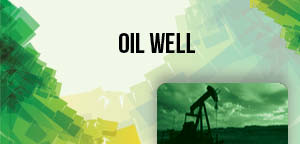
Oil well is a boring in the Earth that is designed to bring petroleum, oil, hydrocarbons to the surface. Usually some natural gas is released along with the oil. A well that is designed to produce only gas may be termed a gas well. It involves Drilling, completion and production. Wells are of different types based upon the production of a substance, and they can be located on land or offshore.
Track 14: Drilling and Well operation

Drilling indicates the total complex of operations that are necessary to construct wells of circular section applying excavation techniques. The planning of Drilling involve Well concept, well proposal, Data acquisition & analysis, well design, drilling program
Track 15: Oil & Gas Equipment:

The oil and gas equipment has been classified as static and rotating equipment, these equipment’s are utilized across all verticals of the hydrocarbons industry: upstream, midstream, and downstream. Within static equipment, we have considered valves, heat exchangers, furnaces, and boilers. Valves are vital for controlling the flow of crude oil or natural gas in oil and gas infrastructure such as wellheads, pipelines, and refineries. Boilers are mostly utilized in the refining industry for steam generation or cooling. In refineries, steam is mostly utilized for steam stripping, steam distillation, process heating, and vacuum distillation.
Track 16: Conventional and unconventional gas

Conventional Gas refers to natural gas that can be produced from the reservoirs using some techniques like traditional drilling, pumping and the compression techniques. Natural gas is referred as conventional when it can be extracted from the Earth either through naturally occurring pressure, or pumping mechanisms. This is opposed to unconventional gas sources like shale gas, tight gas, and coal bed methane. Conventional gas tends to be less expensive and complex to extract than unconventional gas due to the usual nature of production techniques. Historically low natural gas prices have led to the popularity of its use for the power and heating.
Track 17: Sustainable Energy & Bioenergy

Fossil fuels, as originally derived from the organic matter, and have been created over many millennia through the biological and geological processes and are very essentially non-renewable. The energy biomass produces can be converted into electricity, heat or biofuels. Bioenergy can be as simple, complex as an advanced second generation liquid biofuel. Bioenergy is the most widely used renewable energy in the world, providing around 10% of the world's primary energy supplies, mostly as thermal energy for heating purposes and cooking.
Track 18: Downstream, Midstream and Upstream Operations

The terms upstream and downstream oil and gas production refer to oil or Gas Company’s. Oil and gas companies are usually divided into one of three groups, upstream, downstream, and midstream. Some companies are considered to be "integrated" as they combine the functions of two or three of the groups. Upstream oil and gas production is done by the companies who identify, extract, or produce the raw materials. Downstream oil and gas production companies are closer to the end consumer, Many of the products that we use every day comes directly from the downstream production, including natural gas, gasoline, diesel, lubricants, pesticides, heating oil, pharmaceuticals etc.
MARKET ANALYSIS
Petrochemicals are an essential part of commodities used in daily lives. They are used in various end-use industries, ranging from manufacturing to consumer goods. Petrochemicals are chemical compounds derived from petroleum and other hydrocarbons, which are obtained from crude oil and natural gas. They are primarily used as chemical building blocks for a variety of materials and applications. Rising demand for petrochemicals in major end-use industries coupled with favorable operating conditions, primarily in the Middle East and Asia Pacific, is expected to drive the global market for petrochemicals from 2013 to 2030. Demand for bio-based chemicals is increasing due to growing consumer awareness and benefits associated with their usage. Investment in bio-based chemicals in the public sector (including national laboratories and universities) and commercial sector (including large multinational corporations) is anticipated to increase in the near future. Therefore, this trend is estimated to hamper the petrochemicals market. Additionally, volatility in prices of crude oil & natural gas is likely to inhibit market growth. However, rising shale gas discoveries, primarily in North America (including the U.S. and Canada) is benefitting petrochemical producers, since shale gas is considered a substitute feedstock that is used in the manufacture of petrochemicals.
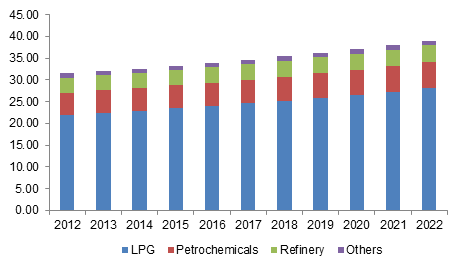
Petrochemical Markets gives a point by point supply, request and value gauges of the key petrochemical feedstock naphtha alongside a review of the petrochemicals advertise including ethylene, propylene, benzene, and Para xylene. The administration likewise gives investigation on splitting financial aspects, arbitrage financial matters; refinery and petrochemical office turnarounds and their effects on provincial adjust.
Customers settle on certain choices in view of significant understanding from HIS Energy's top to bottom learning of market powers and political improvements that drive petrochemical feed stock advertise joined with profound quantitative detail and broad industry encounter.
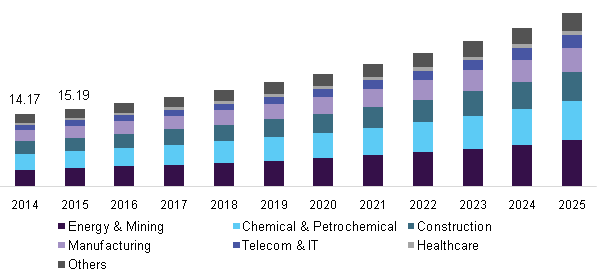
Learn More
Petro chemistry and Chemical Engineering universities in Europe
The University of Aberdeen | Delft University of Technology | The University of Stavanger | Heriot Watt Institute of Petroleum Engineering | Imperial College. | Norwegian University of Science and Technology (NTNU) | Robert Gordon University| Technical University of Denmark | Polytechnic University of Turin (Politecnico di Torino) | Technical University of Crete | The University of Leeds | IFP (Institut Français du Pétrole) | London South Bank | IFP Energies nouvelles (IFPEN) | Samara State Technical University | Instituto Piaget | Manchester | Alborg University | Polytechnic University of Turin | AGH University of Science and technology | Chemical Engineering Conferences | world Congress on Petrochemistry | Petrochemical Conferences | Petrochemistry 2020 |Petrochemistry Conferences |Bioprocess Conferences | Bioreactors Conferences | Bioseparation Conference | Biotechnology conferences | Biotemplating conferences | Chemical analysis Conferences | Chemical processes conferences | Chemical reactors Conferences | Chromatography Conferences | Coagulation Conferences | Chemical Engineering Conferences | Catalysis | Petroleum Engineering|
Petrochemistry and Chemical Engineering Universities in USA
University of Texas at Austin – Cockrell School of Engineering | University of Tulsa – McDougall School of Petroleum Engineering | Colorado School of Mines | University of Oklahoma Norman Campus | The Louisiana State University | Pennsylvania State University| Missouri University of Science & Technology (formerly Missouri-Rolla) | Chemical Engineering Conferences |world Congress on Petrochemistry |Petrochemical Conferences | Petrochemistry 2019 | West Virginia University – Benjamin M. Statler College of Engineering & Mineral Resources | University of Texas | Texas A&M | University of southern California | Texas Tech | University of Alaska | University of Houston | University of Louuisiana | Missouri University Of Science And Technology | Wayne State University | University of Pittsburgh | Nicholls State University | Montana Tech (University of Montana) Chemical Engineering Conferences | world Congress on Petrochemistry |Petrochemical Conferences |Petrochemistry 2019 | Petrochemistry Conferences | Bioprocess Conferences |Bioreactors Conferences | Bioseparation Conference | Biotechnology conferences | Biotemplating conferences | Chemical analysis Conferences | Chemical processes conferences |Chemical reactors Conferences | Chromatography Conferences | Coagulation Conferences |Chemical Engineering Conferences | Catalysis | Petroleum Engineering|
Petrochemistry and Chemical Engineering universities in Asia
Northern Cyprus Campus of Middle East Technical University, Turkey, Ankara | Northern (Arctic) Federal University Arkhangelsk, Russia| Texas University Qatar, Doha | National Research Tomsk Polytechnic University Tomsk, Russia | Xi’an Shiyou University,Chin | ITMO University, ST. PETERSBURG, Russia | Chemical Engineering Conferences | world Congress on Petrochemistry | Petrochemical Conferences | Petrochemistry 2019 | Petrochemistry Conferences| Khazar University Baku, Azerbaijan | The Graduate School at the Petroleum Institute Abu Dhabi, UAE | Al-Habeeb College of Engineering and Technology, Hyderabad, India | Institute Teknologi Bandung, Indonesia | Hong Kong University of Science and Technology | China University of Petroleum | Gate Petroleum | Peking University | Tsinghua University | Northeast Petroleum University | Texas A&M University, Qatar | Kuwait University | Austrialian College of Kuwait | University of Tulsa Chemical Engineering Conferences | world Congress on Petrochemistry | Petrochemical Conferences | Petrochemistry 2019 | Petrochemistry Conferences Bioprocess Conferences | Bioreactors Conferences | Bioseparation Conference | Biotechnology conferences | Biotemplating conferences | Chemical analysis Conferences | Chemical processes conferences | Chemical reactors Conferences | Chromatography Conferences | Coagulation Conferences | Chemical Engineering Conferences | Catalysis | Petroleum Engineering |
Petrochemistry and Chemical Engineering companies in Europe
Petrol AD |InterOil Exploration and Production | Partex Oil and gas | OMV Petrom | Sibir Energy| Tullow Oil | Lundin Petroleum | Premier Oil | Norse Energy | Cairn Energy | Atlantic Petroleum | Hellenic Petroleum | Gazprom | PKN Orlen | SOCAR | Gas Natural | MOL Group | Rio Tinto Group | Royal Dutch Shell | BP | Total S.A. | Statoil | GE Oil & Gas | Eni SpA | Perneco | Worldco | Neptune Marine Oil & gas limited Bioprocess Conferences | Bioreactors Conferences |Bioseparation Conference | Biotechnology conferences | Biotemplating conferences | Chemical analysis Conferences | Chemical processes conferences | Chemical reactors Conferences | Chromatography Conferences | Coagulation Conferences
Petro chemistry and Chemical Engineering companies in USA
American Shale Oil | Amalie Oil Company | Cabot Oil Gas | Chemical Engineering Conferences | world Congress on Petrochemistry | Petrochemical Conferences | Petrochemistry 2019 | Petrochemistry Conferences|Devon Energy | Dura Lube | Castrol | Chief Oil Gas | Enefit American Oil | Gate Petroleum | Frontier Oil | Gulf Oil | Hunt Petroleum | Hess Oil and Chemical | Kosmos Energy | Marathon Petroleum | Metro Fuel Oil | Oasis Petroleum | NOCO Energy Corporation | Occidental Petroleum | Stone Energy Corporation | Taylor Energy | Shell Oil Company| Total Petrochemicals USA | Chemical Engineering Conferences |world Congress on Petrochemistry | Petrochemical Conferences | Petrochemistry 2019 | Petrochemistry Conferences Bioprocess Conferences | Bioreactors Conferences | Bioseparation Conference | Biotechnology conferences | Biotemplating conferences | Chemical analysis Conferences | Chemical processes conferences | Chemical reactors Conferences | Chromatography Conferences | Coagulation Conferences | Chemical Engineering Conferences | Catalysis | Petroleum Engineering |
Petrochemistry and Chemical Engineering companies in Asia
China National Petroleum Corporation | CITIC Resources | Bahrain Petroleum Company | Oil and Natural Gas Corporation | Gujarat State Petroleum Corporation | National Iranian Oil Company | Iranian Central Oil Fields Company | Midland Oil Company | Petroleum Development Oman | Kuwait Oil Company | Philippine National Oil Company | Qatar Petroleum | Chemical Engineering Conferences | world Congress on Petrochemistry | Petrochemical Conferences | Petrochemistry 2019 | Petrochemistry Conferences Bioprocess Conferences | Bioreactors Conferences | Bioseparation Conference | Biotechnology conferences | Biotemplating conferences | Chemical analysis Conferences | Chemical processes conferences | Chemical reactors Conferences | Chromatography Conferences | Coagulation Conferences | Chemical Engineering Conferences | Catalysis | Petroleum Engineering|
Societies of Petrochemistry and Chemical Engineering in Europe
European Fuel Association | Union of European Petroleum Independents | Chemical Engineering Conferences | world Congress on Petrochemistry | Petrochemical Conferences | Petrochemistry 2019 | Petrochemistry Conferences | European Petroleum Industry Association | Hungarian Petroleum Association | International Coiled Tubing Association | National Ocean Industries Association | Society of Petroleum Engineers- Gulf Coast Association | Norwegian Oil Spill Control Association | Petroleum Club of Romania | Association of Dutch Suppliers in the Oil & Gas Industry | United Kingdom Petroleum Industry Association | Oil &Gas U.K Chemical Engineering Conferences | world Congress on Petrochemistry | Petrochemical Conferences | Petrochemistry 2019 | Petrochemistry Conferences Bioprocess Conferences | Bioreactors Conferences | Bioseparation Conference | Biotechnology conferences | Biotemplating conferences | Chemical analysis Conferences | Chemical processes conferences | Chemical reactors Conferences | Chromatography Conferences | Coagulation Conferences | Chemical Engineering Conferences | Catalysis | Petroleum Engineering |
Societies of Petrochemistry and Chemical Engineering in USA
Energy And Natural Resources: Powering Societies | Chemical Engineering Conferences | world Congress on Petrochemistry | Petrochemical Conferences | Petrochemistry 2019 | Petrochemistry Conferences | American Oil &Gas Historical Society | Association of Energy Service Companies | Association of International Petroleum Negotiators | Canadian Association Oil Well Drilling Contractors | Natural Gas Supply Association | South Dalkota Oil & Gas Association | World Petroleum Council | The National Petroleum Management Association | Independent Petroleum Association of America | Petroleum Service Association of Canada | Chemical Engineering Conferences | world Congress on Petrochemistry | Petrochemical Conferences | Petrochemistry 2019 | Petrochemistry Conferences Bioprocess Conferences | Bioreactors Conferences | Bioseparation Conference | Biotechnology conferences | Biotemplating conferences | Chemical analysis Conferences | Chemical processes conferences | Chemical reactors Conferences | Chromatography Conferences |Coagulation Conferences | Chemical Engineering Conferences | Catalysis | Petroleum Engineering
Societies of Petrochemistry and Chemical Engineering in Asia
Association of Energy Servies Companies | Chemical Engineering Conferences | world Congress on Petrochemistry | Petrochemical Conferences | Petrochemistry 2019 | Petrochemistry Conferences | Independent Liquid Terminal Association | Irish Petroleum Industry Association | Polish Organisation of Oil Industry and Trade | Asia Pacific Society of Petroleum Engineers | South East Asian Petroleum Exploration Society | Indonesian Petroleum Association | Chemical Engineering Conferences | world Congress on Petrochemistry | Petrochemical Conferences |Petrochemistry 2019 | Petrochemistry Conferences Bioprocess Conferences | Bioreactors Conferences | Bioseparation Conference | Biotechnology conferences | Biotemplating conferences |Chemical analysis Conferences |Chemical processes conferences | Chemical reactors Conferences | Chromatography Conferences | Coagulation Conferences | Chemical Engineering Conferences | Catalysis | Petroleum Engineering

